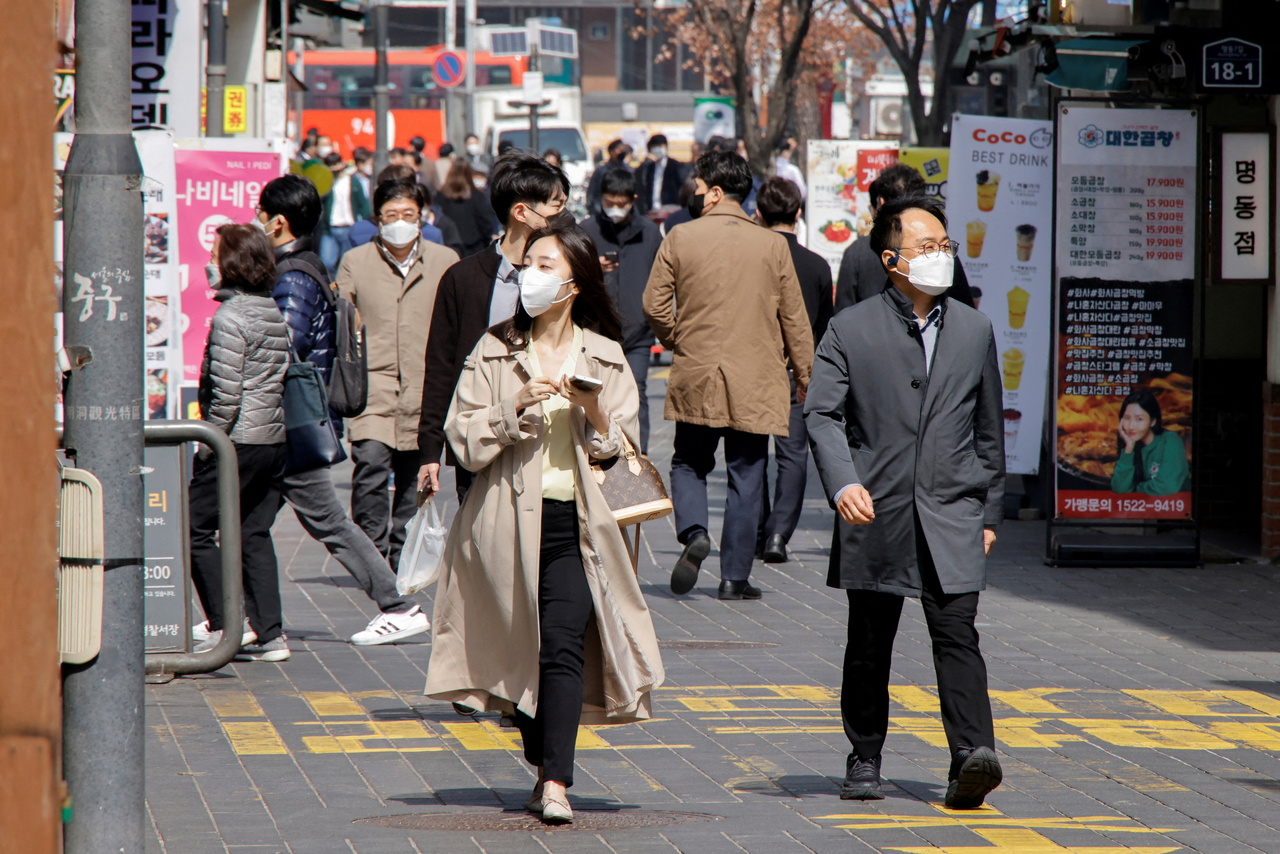South Korean health authorities say Covid-19 wave has passed its peak
Sign up now: Get insights on Asia's fast-moving developments

While the number of cases has soared, there has not been a commensurate increase in deaths in South Korea.
PHOTO: REUTERS
SEOUL (NYTIMES) The worst of Omicron may be over for South Korea, with health authorities announcing that the current wave has passed its peak.
Case numbers are nearly half of those a week ago, and virus-related deaths are also down.
South Korea reported 187,213 new virus cases Monday (March 28), about 100,000 fewer than the day before, and 287 virus-related deaths were reported, down sharply from Thursday's record of 470.
But the country was averaging more than 345,000 daily cases for the previous seven days, still 10 per cent higher than it was two weeks ago, according to the Centre for Systems Science and Engineering at Johns Hopkins University.
South Korea detected its first Omicron case in December. In January, it started reporting about 10,000 new cases daily.
By February, the daily tally passed 100,000. That number soared to more than half a million cases per day this month, the most of any country in the world.
While the number of cases has soared, there has not been a commensurate increase in deaths in South Korea, mainly because of the success of the vaccination programme.
The country has fully inoculated 87 per cent of the population, according to the government, and 64 per cent have received boosters. Vaccination will start this week for children ages 5 to 11.
In February, South Korea switched its virus response plan from keeping cases to a minimum to testing and treating high-risk groups and patients with severe symptoms, allowing the country to slowly ease back on social distancing regulations.
Last week, the government lifted its seven-day quarantine requirement for overseas travellers if they are fully vaccinated and registered in South Korea.
During the recent wave of infections, South Korea never wavered from its plans to relax social distancing measures and border restrictions and learn to live with the risk of the virus, a significant shift compared with how the country responded to any spike in cases during the first two years of the pandemic.
The government's focus has been on allowing businesses to recover and normal life to resume. Several other Asian-Pacific countries are getting rid of Covid-19 rules quickly, even as the Omicron variant of the coronavirus continues spreading in parts of the region.
But in China, outbreaks still do force stricter measures.
The country's largest city, Shanghai, was introducing rounds of lockdowns to be rolled out sequentially across neighbourhoods, the city government announced Sunday night, as part of an effort to test its entire population of 26 million.
Unlike other Chinese cities, Shanghai had never before imposed a full-scale citywide lockdown, but the current measure comes close.


